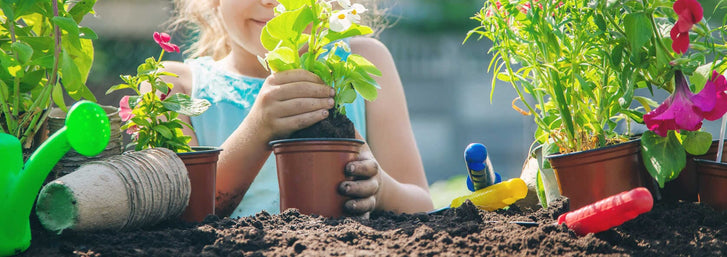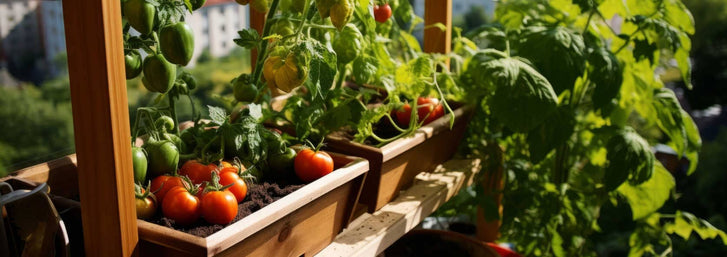
Jordan Freytag

Teaching Through Gardening
“What can educators do to foster real intelligence? We can attempt to teach the things that one might imagine the earth would teach us: silence, humility, holiness, connectedness, courtesy, beauty, celebration, giving, restoration, obligation, and wildness.”
--David Orr
With the growing interest in local food and alternative teaching methods, school garden programs have been sprouting up all over the country in the last decade. Here in the Salt Lake Valley, local non-profits, neighborhood communities, and schools are working together to establish teaching gardens in elementary schools. Gardens are a great way to teach kids math and science concepts in a tactile manner. Students can hold the seeds; count how many to plant, and watch how many seeds sprout. Learning becomes rooted in the material rather than the abstract—encouraging students to touch, taste, smell, and listen to their subjects of inquiry.
Wasatch Community Gardens, a Salt Lake City non-profit, has developed a school garden program to provide support to local elementary schools. The head of the program, Liz Pedersen, explains,
In its first year, the program is supporting existing school gardens at elementary schools in the district (including five Title I schools) and helping teachers integrate the garden into their curriculums. The program is working to engage students, administrators, parents, and volunteers in participating in the garden projects. Over the long-term, the program will assess the specific needs required to sustain school gardens in elementary schools in the district.
By involving communities in garden programs, teaching gardens become valuable to more than just individual schools. With a diverse group of stakeholders, gardens increase their potential for longevity and can open up space to experiment with curriculum that centers on community-specific issues.
Another Salt Lake City non-profit, Real Food Rising, is working with teenagers to develop farming and interpersonal skills by involving youth in growing their own food, helping out at local farms through “Farm Mobbing”, and exploring food justice issues. Teens have the opportunity to cultivate leadership skills by being in charge of farming crews and volunteer groups. Additionally, youth get to be closely involved with the planning and planting process by engendering a vested interest in farm and community responsibilities.
School gardens also provide students and teachers a place to consider concepts and values that are not mandated by state educational standards. The act of growing things is a messy task--materially, intellectually, and emotionally. Students and teachers must learn to improvise, understand connections, and become comfortable with the unknown. Gardening always involves a wide variety of variables, some of which humans are not in control of. Weather, ecological dynamics, and initial soil quality contribute to an environment of uncertainty. This uncertainty breaks classroom thinking which focuses on formulas, answers, and control. Through gardening, students are given a space to question and wonder. Learning becomes an open ended process where students and teachers can learn from the mystery of ecological systems.
Here are some great seeds to start with: Sunflower, Radish, Carrot, and Jalapeno
Check out Wasatch Community Gardens and Real Food Rising to learn more about their student gardening/farm programs!
Happy Planting!
*Note: All gardening puns found in this newsletter are intended.
Leave a comment
Your email address will not be published. Required fields are marked *
0 Comments
No Comments yet! Be the first to start a conversation
Further Reading

10 California Natives for Organic Pest Control
Written By Lara Wadsworth Whether you call California home or not, we can all agree it is a beautiful state. From the alluring coastline to the towering redwoods, the natural meadows, and rugged mountains, California is a place all its own. How can you...

Ashleigh Smith
2024-05-066 min read0
Growing Love This Mother's Day: Activities and Gift Ideas
Mother’s Day is celebrated with a variety of heartfelt traditions, from giving flowers and cards to giving service and more. In its roots, Mother’s Day goes back to ancient spring festivals relating to maternal goddesses. Mothers and motherly bonds may...

Ashleigh Smith
2024-04-304 min read0
Grow Your Garden Anywhere: Finding Container-Friendly Plants
Looking for varieties that are container-growable? It is easier than ever to find garden seeds that can be grown in tight spaces like patios and balconies! True Leaf Market has added an identifying icon that appears as a dark green circle with a white ...

Ashleigh Smith
2024-04-302 min read0
Subscribe & Save On Sprouting Seeds, Microgreens, And Supplies!
True Leaf Market is now offering a Subscribe & Save option for popular sprouting seeds and grains, microgreens seeds and supplies, and your petgrass needs. Whether you make sprouting and microgreens a staple in your kitchen or have a microgreens busine...

Ashleigh Smith
2024-04-304 min read1



